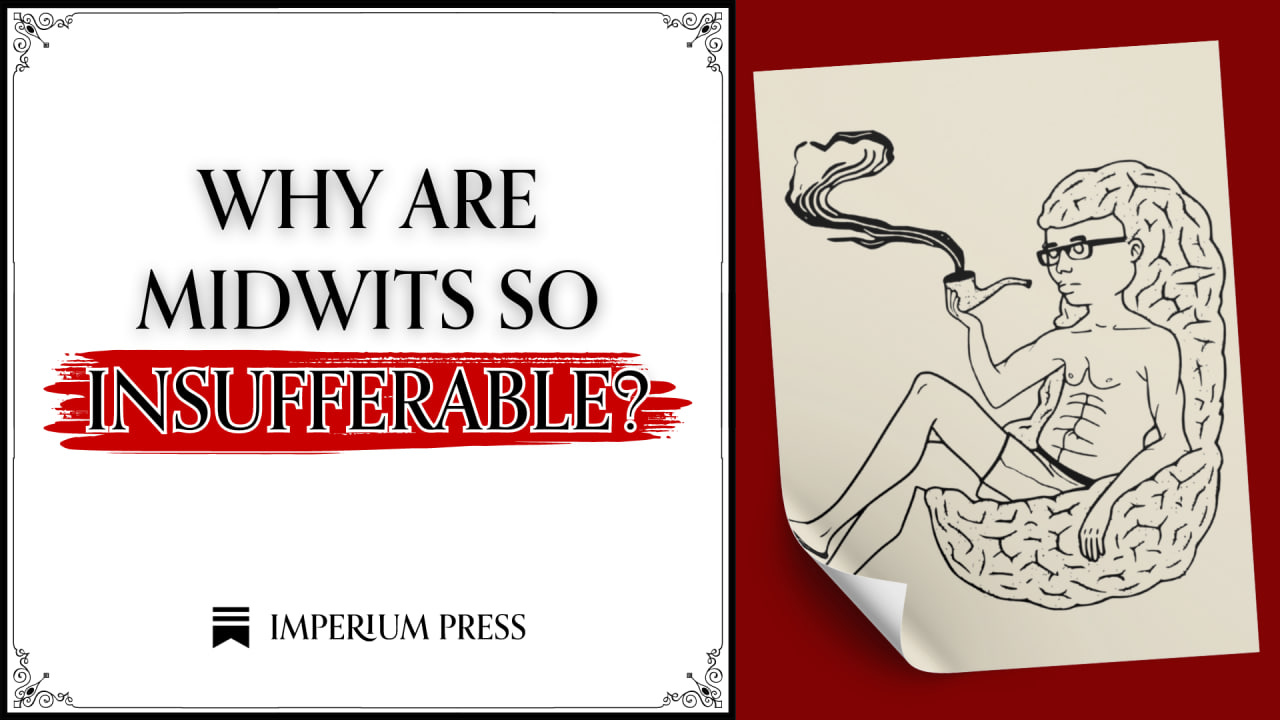If you prefer the audio of this article, click here.
Everyone has encountered the midwit. You’ve met him at your job. Maybe he’s your colleague, maybe he’s that annoying client, maybe he’s even your boss. You’ve encountered him at school, mainly in humanities programs. You’ve encountered him on social media. If you’re on reddit for some reason, you’ve surely met him. And if somehow you read mainstream journalism, you’ll get a pure mountain stream of midwittery drip-fed into your brain.
Everyone who spends any time with the midwit knows he’s insufferable. Often when I read an article on a topic I know something about—say, dead languages, audio production, or pagan theology—I will see one of these people say something I know is dead wrong, with the confidence of a 7-foot tall John Holmes on meth. Nothing quite makes me cringe like seeing the midwit get caught with his pants down and not even realize it. The midwit is truly one of the most exhausting, insufferable creatures ever to creep upon this blighted earth. This much we all know.
But why is he so insufferable? This much is not obvious. I submit that the midwit’s presence is so unbearable because he is a victim, ladies and gentlemen. He is the most acute sufferer of all, from what has been called the Dunning-Kruger effect.
This may seem counterintuitive, because the Dunning-Kruger effect is the systematic tendency of the stupid to overestimate their competence. However we shall argue that this tendency is much more prominent in the midwit, especially the slightly above-average midwit.
In the 1990s, two psychologists at Cornell University investigated whether incompetent people are oblivious to their incompetence. They administered a 20-question logic test to 45 students and asked them to estimate their own performance and compare it with their peers. The lowest scorers significantly overestimated their abilities, believing they performed better than 62% of peers, despite being in the bottom 25%.
This discrepancy, termed the Dunning-Kruger effect, pointed to a cognitive bias, and every time someone says the words “cognitive bias”, a redditor gets his wings. It was not long before this term became a kind of shillelagh that the midwit carried with him everywhere to club his enemies. This coincided with the rise of New Atheism, a volley of “fallacy! fallacy!” followed, and suddenly having a neckbeard might be socially acceptable. It was a golden age for the midwit.
The problem is that Dunning-Kruger turns out to itself be fallacious.1 Further research discovered that the effect was not a genuine psychological phenomenon, but simply an artifact of how the effect is measured.






